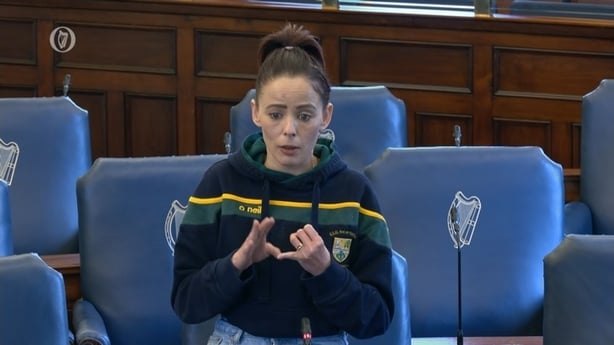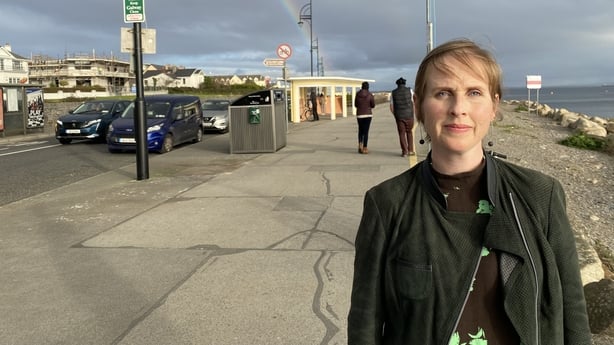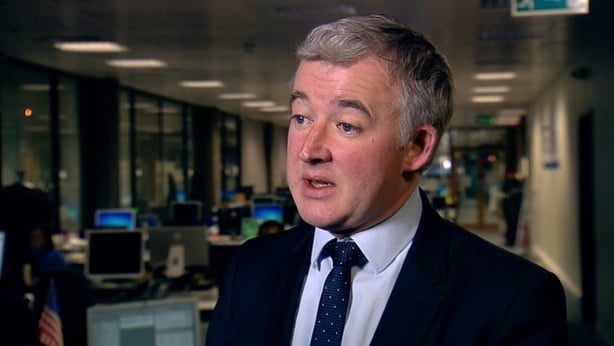A new bill updating Ireland's laws on hate crime and hate speech has been approved by government and is currently making its way through the Seanad.
For some it’s long overdue legislation which will finally allow the proper prosecution of certain cases.
For others, it represents a degradation of a key tenet of democracy; freedom of speech. Either way, it’s divided opinion.
Here are five points about the Bill to help understand where you stand on it.
The Incitement to Hatred and Hate Offences Bill was introduced in the Oireachtas last year by Minister for Justice Helen McEntee.
Previous legislation on the topic dates back to 1989 and was seen as insufficient in the age of social media.
1. Definitions of 'hate' or ‘hatred’ not provided
Despite the title, "hate" or "hatred" is not defined in the new Bill. That is something which has been flagged as a concern by people from across the political spectrum.
"We should be naming that in the Bill," Senator Eileen Flynn told Prime Time. She’s a member of the Irish Travelling community who broadly supports the Bill.
"We should go through it with a finecomb and say, ‘this is our definition of hatred.’ My definition of hatred is attacking a person because of who they are."

Senator Michael McDowell has also been critical of the lack of a strict definition of hatred.
He is not opposed to updated legislation in principle but has serious concerns about the Bill as it is written.
"The draft legislation is effectively going to leave it to the judges to determine what the bar should be in terms of criminality," Senator McDowell said.
Under the draft Bill, a person found guilty of an offence under Section 7 could be liable for a fine or imprisonment for a term not exceeding five years.
2. Some people have concerns it will restrict free speech
The broader debate has centred on how the Bill might restrict freedom of expression. It has drawn international attention across the political spectrum, but in particular from individuals on the right-wing of American politics.
Freedom of expression has been a guaranteed right since the foundation of the State. Article 40.6.1 of Bunreacht na hÉireann protects "the right of the citizens to express freely their convictions and opinions."
Critics at home and abroad say the new legislation has the potential to impact these rights. Supporters say such concerns are significantly overblown.
A video clip of Green Party Senator Pauline Flynn’s contribution to the Seanad debate on the Bill was widely shared online in June. It drew comments from high-profile people including Donald Trump Jr and Twitter owner Elon Musk, and was featured by American media outlets, including Fox News.
In it, Senator O’Reilly said, "all law and all legislation is about the restriction of freedom. This is exactly what we are doing here. We are restricting freedom, but we are doing it for the common good."

Senator Michael McDowell disputes that interpretation.
"Pauline O'Reilly's summation of the situation is incorrect from a constitutional point of view." he told Prime Time.
"Some constitutional rights can be abridged in the interests of the common good, such as property rights, and that's specifically provided for. But other constitutional rights are guaranteed and subject to public order and morality.
He went on to say that "It isn't open to the Oireachtas to say that you can't say X or you can't say Y because we believe that the common good requires that you shouldn't be allowed to say X or Y.
"We have to be very careful that we don't extend criminal liability to areas which, at the moment, are considered to be in the domain of free speech. Argumentative free speech, insulting free speech, demeaning free speech and the like."
Many legislators – including Senator O’Reilly - and policy experts believe it will not unduly restrict freedoms.
3. Many EU countries have some hate speech legislation
"We're the last to legislate this area, and without it, we're the laggards of Europe," according to Dr Seamus Taylor of Maynooth University.
He has spent decades working on diversity and hate crime issues in both Ireland and the UK.
"We shouldn't be delaying this unduly and we should be working to get this on our statute book. Law is never perfect. Law can always be improved. But in my view, sometimes good is good enough."
Liam Herrick, of the Irish Council for Civil Liberties (ICCL), agrees with Dr Taylor on certain aspects of the Bill.
"We've had a historical gap of having no hate-crime legislation, which is a clear gap in our criminal legal system for many decades. And it's required by international human-rights law with regards to incitement to hatred."
"Much of what's being proposed under the current government Bill really seeks to remedy some of the technical problems to make the law workable, to make sure that prosecutions are possible, but also that there's an effective protection for affected communities."

4. Concerns about possession of certain material and impact on privacy rights
Section 10 of the Bill relates to preparing or possessing material likely to incite violence or hatred against people on account of their protected characteristics.
The protected characteristics in the new legislation are race, colour, nationality, religion, national or ethnic origin, descent, gender, sex characteristics, sexual orientation and disability.
Despite broadly welcoming the provision of hate-crime legislation, Liam Herrick of the ICCL has concerns about how this section could be interpreted in relation to a person’s right to privacy.
"That is an area that I think could actually criminalise activity in the privacy of somebody's own home. Now, I don't think that's the intention, but we feel at the moment it's poorly drafted."
Dr Seamus Taylor disagrees. He says our legal system is robust enough to protect against unjust prosecutions.
"Under this law, there has to be approval of the DPP (Director of Public Prosecutions) to prosecute. We have sensible law enforcement agencies who exercise judgement," Dr Taylor said.
"It would go through the Gardaí; it would then maybe be referred to the DPP. I cannot see either of those law-enforcement agencies making what would be an unjustifiable decision to prosecute when somebody has material for wholly legitimate reasons."
5. The views of the public and process of public consultations
The legislation is supported by many organisations working with minorities in the country.
Others reject the need for it in the first place.
Critics of the Bill say that the government has become increasingly reticent to make amendments that could address some of the concerns they have raised.
Simultaneously, there has been controversy about submissions made during the public consultation phase.
Consultation on the Bill was carried out in late 2019 and gave members of the public an opportunity to submit their views on whether or not Ireland’s speech laws should be updated.
The consultation garnered over 3,600 responses.
Reports in May suggested the majority of submissions were opposed to hate crime legislation, something Minister Helen McEntee disputes.
Writing in The Sunday Times in June, Minister McEntee said such claims were incorrect and that the Department of Justice had not "ignored the public consultations we have undertaken since 2019 on this legislation, which were significantly positive."
She also wrote that "some have erroneously claimed there is significant opposition to the legislation because of the false belief that offensive speech would be criminalised when this is not what is being proposed."
Dr Seamus Taylor said there was an orchestrated campaign to submit responses.
"Many responses - it appears - came from outside of Ireland and they followed a similar response script," he said.
"It was a deliberate, orchestrated campaign to say ‘no’ to the legislation which would seem to indicate that far-right groups were prompting those responses."
But Senator McDowell believes this assertion is unfair and incorrect.
"It isn't just a crowd of mad right-wing xenophobes who are concerned about this legislation. Liberals like myself are deeply concerned about the implications of restricting freedom of speech to an excessive extent," he said.
Watch Conor Wilson and producer Sallyanne Godson’s Prime Time report on hate-speech laws at 9.35pm on RTÉ One.






